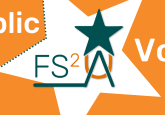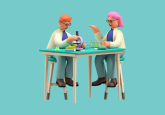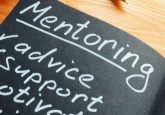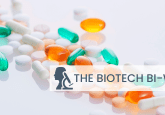Highlights from the Chair: ELRIG’s Research and Innovation Conference 2023
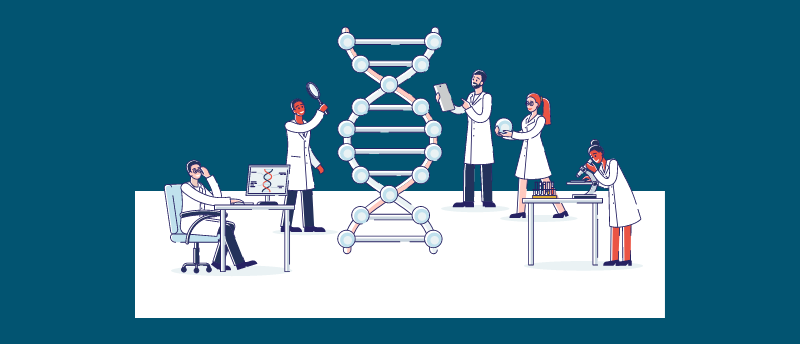
 At the European Laboratory Research and Innovation Group’s (ELRIG) recent Research and Innovation Conference (Cambridgeshire, UK; 29th–30th of March 2023), our Content Editor Aisha Al-Janabi caught up with ELRIG’s Chair Melanie Leveridge to find out more about the organization, how it supports early career researchers and advice for making the most of conferences.
At the European Laboratory Research and Innovation Group’s (ELRIG) recent Research and Innovation Conference (Cambridgeshire, UK; 29th–30th of March 2023), our Content Editor Aisha Al-Janabi caught up with ELRIG’s Chair Melanie Leveridge to find out more about the organization, how it supports early career researchers and advice for making the most of conferences.
Melanie is the Senior Director at GSK (Stevenage, UK) leading the Screening, Profiling and Mechanistic Biology team, which provides assay development, high-throughput screening and mechanistic biology expertise to support all of GSK’s small molecule discovery portfolio.
Could you tell me about ELRIG?
ELRIG is a not-for-profit organization and its mission is to bring the life science community together to learn, share, connect, innovate and collaborate. We do that on an open access basis, so all of the events are free to attend and do not have a registration fee. We put on a range of scientific conferences, from bigger conferences like the Research and Innovation conference to one-day forums, which are slightly smaller meetings on focused topics. We also host informal networking events, and, increasingly, digital content, which is an area that we are looking to grow with webinars and other online content.
Importantly, the reason that we can put on our events on a free-to-attend basis is because of the support of the life science supplier community. Technology vendors, contract research organizations, service providers and reagent providers buy exhibition space at our meetings. All ELRIG meetings have an exhibition accompanying them, and thanks to the sponsorship of those suppliers, we can fund the meeting. The vendor community is a really important part of ELRIG’s community.
What does being Chair of ELRIG entail?
I am Chair of the Board for ELRIG, meaning I lead the Board in defining ELRIG’s strategy. I work very closely with Sanj Kumar, the CEO of ELRIG, to guide the activities of the professional team. Also, as the Board, we are accountable to make sure that ELRIG is a financially sustainable organization and we are looking after the employees of ELRIG.
One thing that is important to note is that ELRIG is very much a volunteer-led organization. There’s a small but mighty professional team, but all of the board members, myself included, do this on a volunteer basis, as well as the wider general committee and all of the people who support the various work groups. We do that because we are very passionate about what ELRIG does. We want to give back to the life science community and I am very honored to work with such a great group of people. It really feels like that is a core principle of ELRIG, that it should always be a volunteer-led organization run for the community.
What have been some of your highlights from this conference?
The purpose of this Research and Innovation conference is really to give space to emerging topics that don’t get as much time at some of the more mainstream discovery meetings. Along that theme, my highlight, so far, was the opening keynote from Ron Weiss of MIT (MA, USA) who was talking about programmable organoids and self-learning cells, which is the first time I have heard someone talk about that idea. I think everyone came out of that talk thinking “Wow, it’s just incredible”. We are used to hearing about artificial intelligence and machine learning from a kind of data science perspective and he was introducing the concept of bringing that into a living cell, which was honestly a bit mind-blowing.
I think the highlight for me for every ELRIG meeting I go to is always the networking. You get to meet new people, but also rekindle old connections that you haven’t seen for a long time. The vendor exhibition has also been great.
How does ELRIG support early career researchers and professionals?
About a third of ELRIG’s community are early career professionals (ECPs). Over the last 5 years or more, we have really been working to provide activities for ECPs and build up that community. We have ECPs on the Board of ELRIG and the general committee and we have a work group dedicated to ECPs who come up with a program of events every year aimed at ECPs, which includes things like speed networking.
We also have ‘Network like a Boss’, which has become a bit of a brand in its own right. We run this event at our flagship Drug Discovery meeting and at other events, but it also runs in partnership with other organizations at their own meetings. We have webinars specifically for talking about career development topics among other educational content for ECPs. But I think at the heart of it is trying to make sure ECPs are part of ELRIG’s governance and community.
What else can we expect from ELRIG in 2023?
In addition to Research and Innovation, in the first half of this year we have also had the our first meeting around therapeutic oligonucleotides (ELRIG’s Therapeutic Oligos & European Chemical Biology Symposium), hosted at AstraZeneca in Gothenburg (Sweden). The first day and a half of this meeting was focused on oligos, which are a really exciting, growing modality, whilst the second half of the meeting had a chemical biology focus, so things like molecular glues, PROTACs, cell profiling by cell painting. It was a great 3 days of science.
Of course, we also have our flagship Drug Discovery event in the autumn, which will be in Liverpool (Drug Discovery 2023: Diverse Thinking – New Perspectives; 18th – 19th October 2023). This is Europe’s largest drug discovery conference. We have a huge vendor trade show, usually with over a hundred vendors and a couple of thousand participants. There will be lots of ECP content and additional content round the main scientific program.
To finish off the year, we have a meeting focused on high content imaging and flow cytometry, which is going to be hosted where my team are based at the GSK Stevenage site, so we are looking forward to welcoming people to Stevenage. (High Content Imaging and Flow Cytometry in Drug Discovery; 21st – 22nd November).
Finally, beyond our larger conferences we have numerous one day forums on focused topics, and some informal evening networking events.
What advice do you have for making the most out of attending conferences?
Network, network, network
Yes, these events are for learning about science and technologies, but equally it’s about the networking and creating new interactions to increase your understanding of science, and from a career perspective, to build up your connections. It can be nerve-wracking to start those conversations and start networking but take a deep breath and go for it! Presenting at an event is a really good way of informally starting that networking conversation because people will come up to you, ask you about your talk and ask you questions. It naturally facilitates that conversation. Again, whilst presenting might seem nerve-wracking, I would say go for it! Put the abstract in and do the talk because it’s a really good way of building up your connections.
